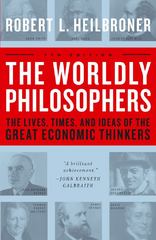Question
PART TWO: You are now the Judge in the Theodore & Franklin vs Kitdoodle case. Read these facts: Facts: Theodore & Franklin developed Crazy Cat,
PART TWO: You are now the Judge in the Theodore & Franklin vs Kitdoodle case. Read these facts: Facts: Theodore & Franklin developed Crazy Cat, a caricature of a Calico Cat with a "do-not-back-down" attitude. They promoted and marketed the character to KitDoodle, a popular supplier of cat food and cat products. Kipling, a marketing manager at KitDoodle, liked the idea. He presented it to the CFO (along with financial terms) who rejected it. Soon thereafter, the CFO approached the advertising agency KitDoodle usually works with and presented a "new idea" involving a Crazy Calico Cat. The company made the Cat the focus of its marketing, which was very successful. Nothing was paid to Theodore & Franklin. Theodore & Franklin sued KitDoodle for, among other things Breach of Implied Contract. {NOTE: although Theodore & Franklin likely have a claim for violation of Intellectual Property, this is a lesson in Contract Law, so focus on that.} ANSWER THESE THREE QUESTIONS: 4. Do Theodore & Franklin have an express contract with Kitdoodle? Explain. 5. Using the rule from the Seawest case, state a corresponding fact from the Kitdoodle Case to help you decide whether or not there is an implied/quasi contract between Theodore & Franklin and Kitdoodle. You should list 4 facts, one for each part of the rule. 6. What is your conclusion? Is there an implied/quasi contract between Theodore & Franklin and Kitdoodle? Explain
Step by Step Solution
There are 3 Steps involved in it
Step: 1

Get Instant Access to Expert-Tailored Solutions
See step-by-step solutions with expert insights and AI powered tools for academic success
Step: 2

Step: 3

Ace Your Homework with AI
Get the answers you need in no time with our AI-driven, step-by-step assistance
Get Started


